
Healthy water for all
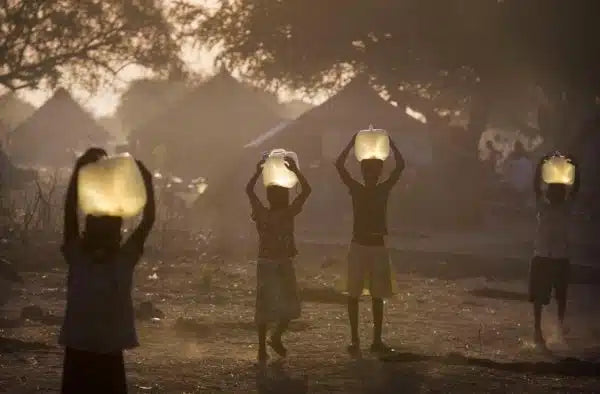
Universal access will promote justice and peace in the world
For those living in an economically strong country, it is often difficult to imagine the obstacles faced by populations for whom access to drinking water is not a reality. Imagine for a moment not having any drinking water at your tap, or worse, not having a tap at all, whether individual or collective. Imagine having to travel miles every day just to fetch the water your family needs...
Just imagine...
Then your day-to-day life no longer has the same flavour. Everything becomes more complicated! Hygiene, food, health, school, work, absolutely everything is different. And this reality is experienced by billions of people around the world who fall victim to water-borne diseases every year.
Adapting humanitarian responses for access to drinking water
Today's technology already allows us to provide decentralised solutions. This is true for access to water as well as other essential services. They can now be delivered directly to users, including those living in remote areas where 'traditional' services will never arrive. It is our duty to ensure that villages and households have access to off-grid solutions without further delay. Drinking water, sanitation and energy can now be made available to everyone. We believe that national and local governments, international and local NGOs, and the private sector need to work together with communities. Together, we can make existing solutions available, based on people's specific needs. Underlying such collaboration must be non-obsolescence, reparability, sustainability, safety and also the frugality of technical solutions.
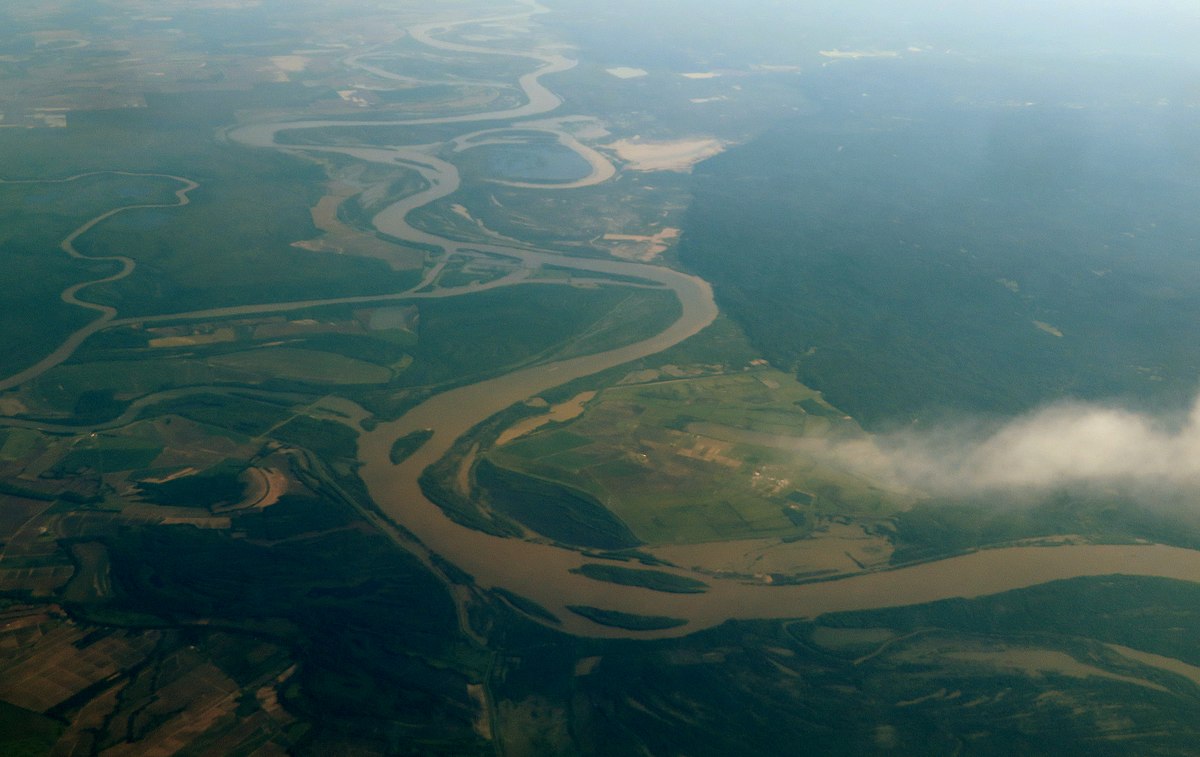
Assuming our collective responsibilities
Taking collective responsibility Its unequal access between human beings illustrates the situation of humanity in the face of climate disruption. It makes no sense to ask the poorest countries and populations to make an effort to reduce their impact on the planet when they do not have access to the basic necessities of life. It is unrealistic and selfish. Let's remember our commitments to 2030 and not pass on our responsibilities to those who are already suffering the most.We need cooperation between:national and local governments, which have the legitimacy to act,NGOs, which have knowledge of the realities on the ground,social enterprises, which are innovating in the humanitarian field,major companies, which are making a social and financial commitment.We now know that each link in this chain has a role to play and responsibilities to assume. We now know that each link in this chain has a role to play and responsibilities to assume, with the aim of bringing social justice to our planet and protecting its eco-systems. Only NGOs are confronted with the realities on the ground and with globalisation and the multiplication of needs. Only social enterprises and large companies are finding it difficult to match needs with solutions. Governments alone are faced with a mismatch between their resources and the needs of their populations, but they must act quickly. Together, we can provide solutions that are more effective, more agile, better adapted, quicker to deploy and more sustainable.
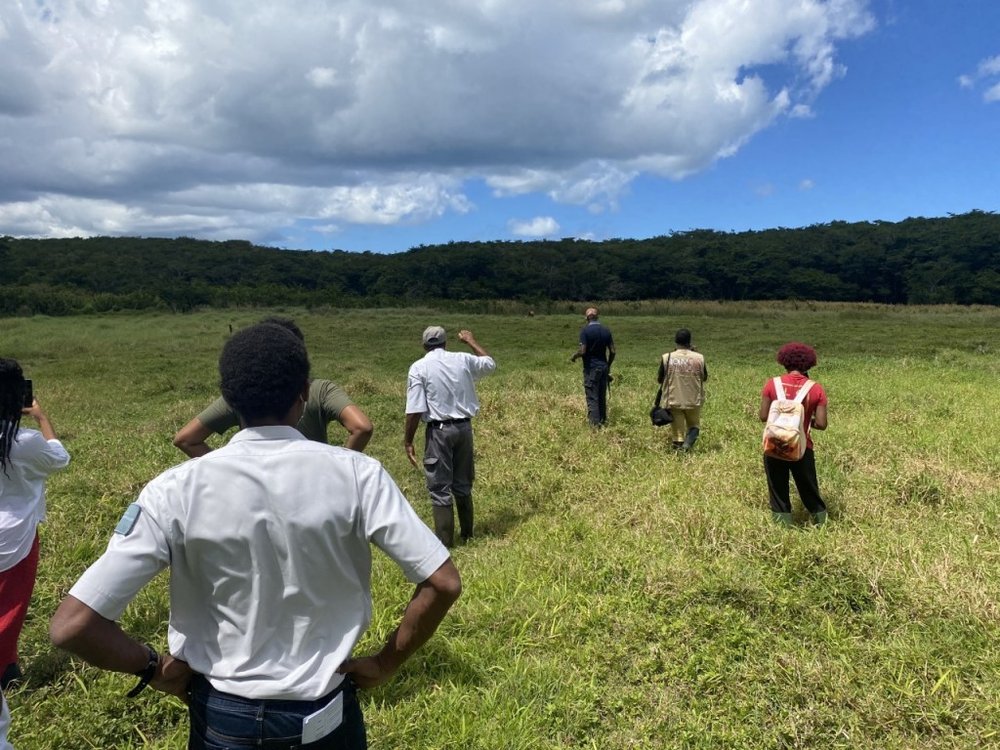
Will technology save the world?
Some people naively believe that technology will save the planet. Technology must serve people, not the other way round. It must also be relevant and adapted to the real needs of populations to promote awareness and education for all. This aspect is still too limited in humanitarian innovations, which often fail to transform behaviour. We believe that the gamble of technology saving all the world's ills is too uncertain, and prefer action and collaboration. Technology is a tool that must be made available to as many people as possible. As soon as it has a positive impact on the most disadvantaged among us, its effect is real and relevant. Acceptance is therefore natural. The challenge must be met today, with the tools we have today, and not put off until tomorrow, when it will be full of hypothetical promises.
Collaboration is the path that will lead us towards agile and sustainable solutions for all
The world of today is dying, and is clinging to its own shreds with its greedy and destructive hand. Let's make sure it doesn't take the whole planet down with it. Now is the time to choose, each at his or her own level: governments, NGOs, private companies, citizens. Whether we want to continue this deadly quest for materiality or whether we decide that in a finite world, everyone must be able to have access to minimum services in order to lead a dignified and fraternal life. The reduction in consumption in the richest countries, an essential parallel to equality between men, cannot be seen as a punishment. Only those who look at the world through the lenses of consumer marketing, which is omnipresent in our societies, think so. For Fonto de vivo, a committed company, the creation of value must have a meaning that cannot be the incessant search for added value. Our ambition is clear: to create value in order to innovate and provide simple, sustainable solutions to essential human needs; Humana solvo.
2030: United Nations Sustainable Development Goals, cooperation for access to drinking water
By 2030, the United Nations plans to achieve the 17 Sustainable Development Goals (SDGs) set out in the 2030 Agenda. This is a collective effort by the Member States of the United Nations to save the world and take action to ensure access to drinking water. We know that the needs remain immense, which is why the World Water Forum was initiated in 1997. Yet we still have less than a decade to meet them. There is still a long way to go before we can offer every human being a life of dignity and independence.
at the heart of the Sustainable Development Goals
Unequal access to drinking water, an everyday reality
From the outset, the ambition of Fonto de vivo's co-founders, David Monnier and Anthony Cailleau, was to create a business with a strong social and environmental dimension. 7 years after the company was founded, Fonto de vivo is demonstrating the tangible impact inherent in its mission.
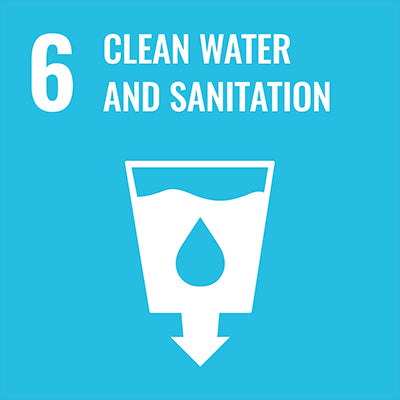
SDG6
Drinking water for everyone, everywhere
Access to water is a fundamental right, vital to our daily lives for drinking, eating and looking after ourselves. Water is the common denominator of human rights, enabling everyone to be healthy, free and therefore autonomous.
Although this challenge represents an SDG, and considering the progress made over the last twenty years, Solidarités International indicates in its annual barometer that goal n°6 [ Guarantee access for all to sustainably managed water supply and sanitation services by 2030 ] risks not being achieved. We need to step up our efforts quickly.
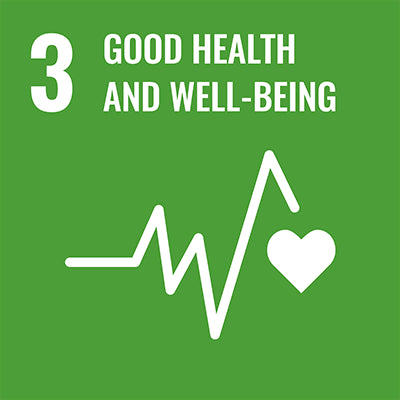
SDG3
Health and well-being for all
Even today, 2.2 billion people are exposed to waterborne diseases every year. The WHO and UNICEF reveal in the Joint Monitoring Program for Water Supply 2017 report that 361,000 children under the age of five die every year from diarrhoea caused by inadequate access to water, sanitation and hygiene. This is an absolute emergency that requires lasting solutions.
Being deprived of drinking water has serious repercussions on nutrition, reinforces child malnutrition and has lifelong consequences for many families and communities living in precarious conditions or in areas without sanitation.
ODD 12
Responsible consumption and production
Committed to sustainable development, Fonto de vivo promotes responsible behaviour and encourages it with ORISA®. The water purifier is self-sufficient and filters by manual pumping, thereby limiting the use of energy. Durable, it considerably reduces the use of regular consumables thanks to a high-performance, long-lasting French ultrafiltration membrane. Finally, ORISA® is repairable, giving users autonomy over time when it comes to water filtration.
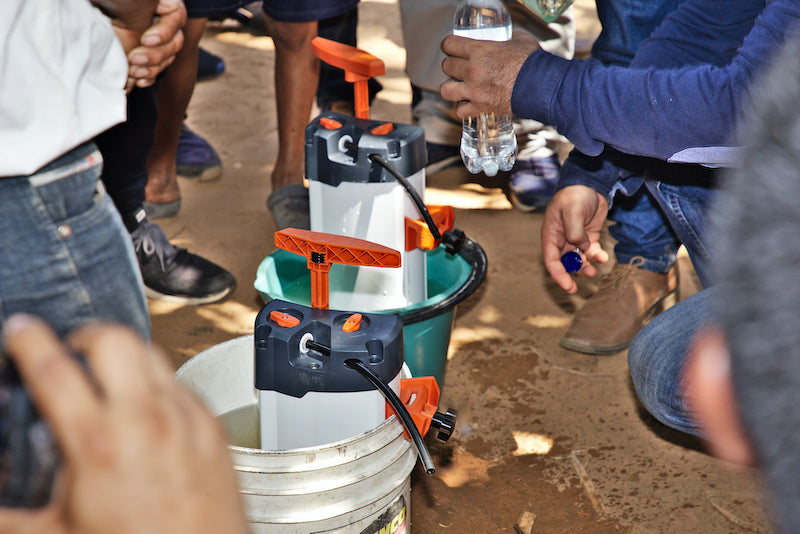
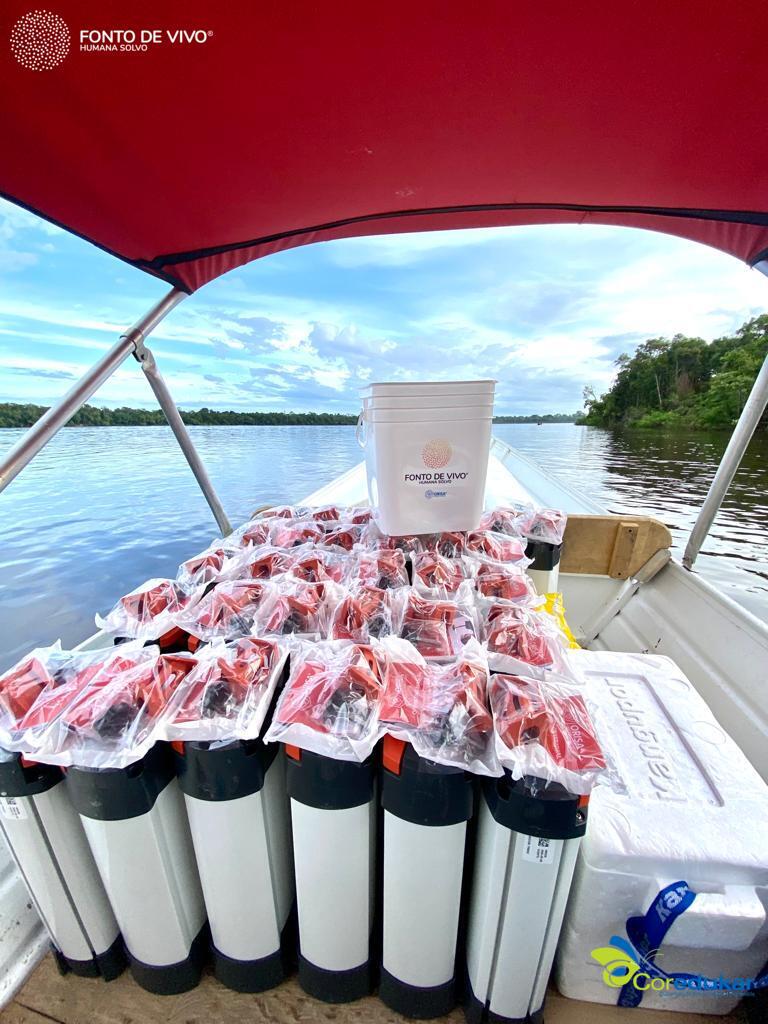
Taking concrete action where needs are most urgent
The need for clean water is universal. Every human being, their family, their community and, more generally, their population, is dependent on this resource, but not everyone has equal access to it for a variety of reasons. As part of the deployment of purifiers with our partners and customers, we are acting on 4 priorities to fight effectively and on a massive scale against the scourge of access to purified water.
In collaboration with international aid agencies, international NGOs, humanitarian associations and socially committed companies, we have deployed more than 24,000 ORISA® water purifiers in over 60 countries, mainly in Latin America and Africa.
-
+24000
Deployed ORISA® water purifiers
-
+50
Countries concerned
Making water more accessible:
Some flagship projects
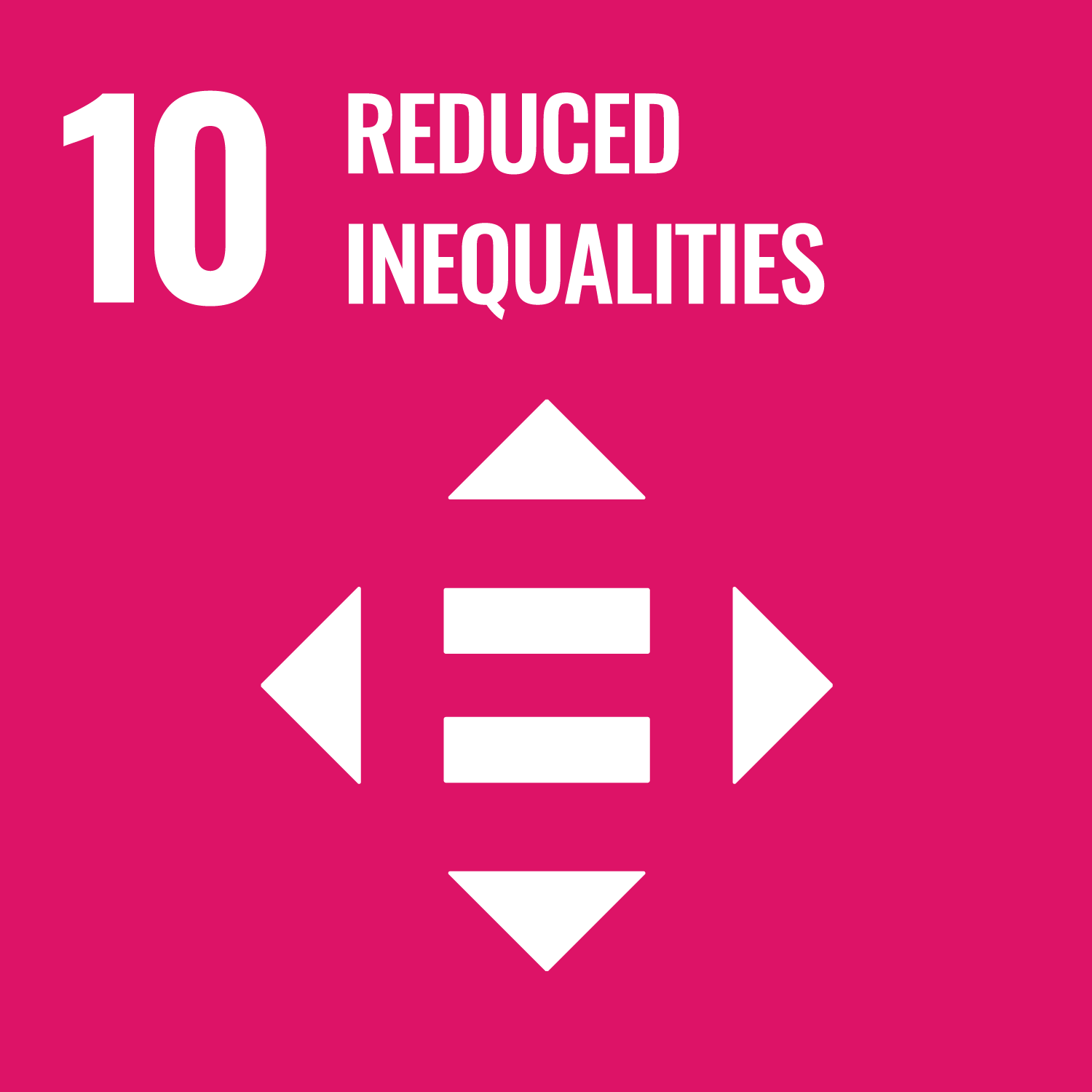
SDG10
Taking action against precariousness
We are taking action against precariousness, so that every human being can lead his or her life with dignity and autonomy. In fact, we deployed 973 ORISA® purifiers as part of a humanitarian operation in Madagascar with Doctors Without Borders to combat malnutrition, particularly child undernutrition. Thousands of children suffering from difficult conditions, the consequences of global warming and famine, were treated in mobile clinics in 17 localities equipped with our autonomous filtration systems.
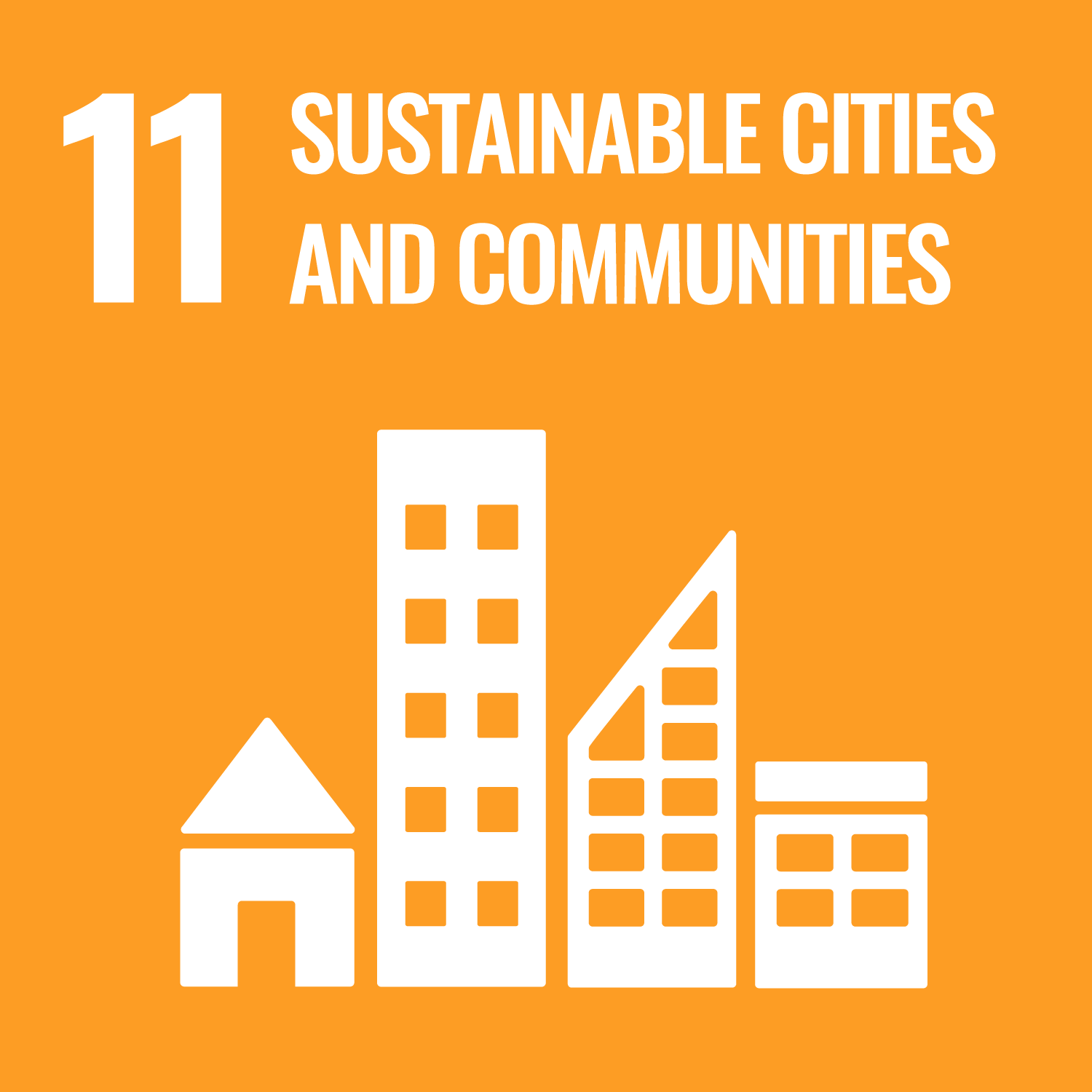
SDG11
Supporting rural life
In Colombia, we carried out a FASEP Green Innovation project as part of a France-Colombia partnership, funded by France's Treasury Department. With a strong social dimension, this mission is based on the provision of 2,430 ORISA® purifiers for the benefit of more than 10,000 people in an entire department of Colombia covering more than 100,000 km2. The Fonto de vivo LATAM team, based in Bogota, was responsible for on-site logistics, training for beneficiaries and public relations with the various local entities.
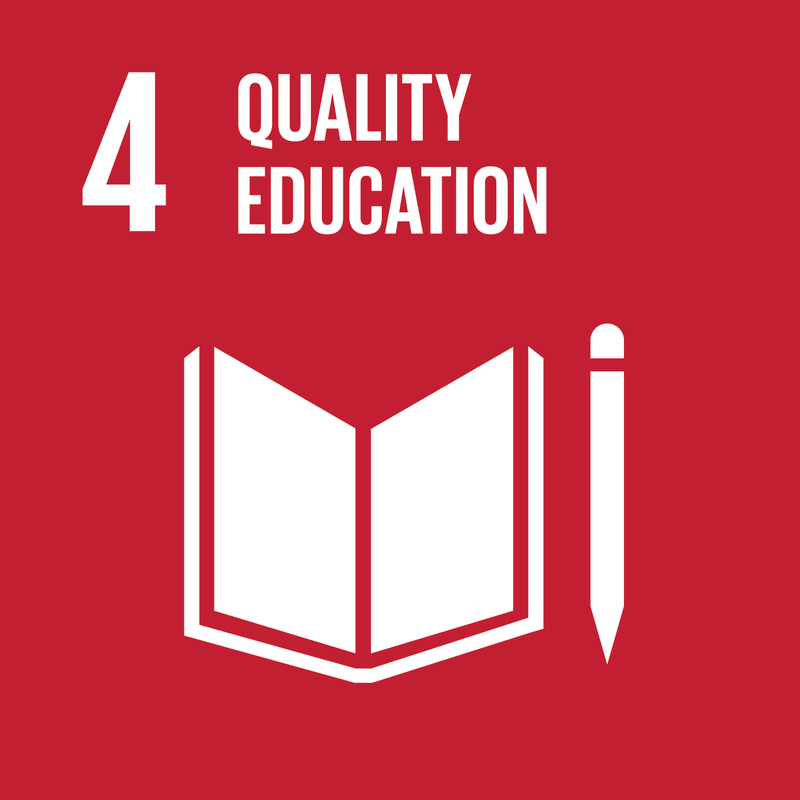
SDG4
Promoting education
We work for children, and in particular for education. The ORISA® purifiers deployed by our partners are very often given to families, helping to keep children in good health. This is how they can learn and live a dignified and serene childhood. We also work regularly with the child sponsorship association Un Enfant par La Main.
In Haiti, we provide 4,400 children and 154 teachers with access to clean water throughout the day. In this way, they can comply with the recommended hygiene measures for keeping their hands clean, which limit the spread of disease, and hydrate themselves independently. 60 purifiers are available in 30 schools in Grande Anse. The project was financed by Capgemini and its Europe unit, and carried out locally by Solidarités International teams.
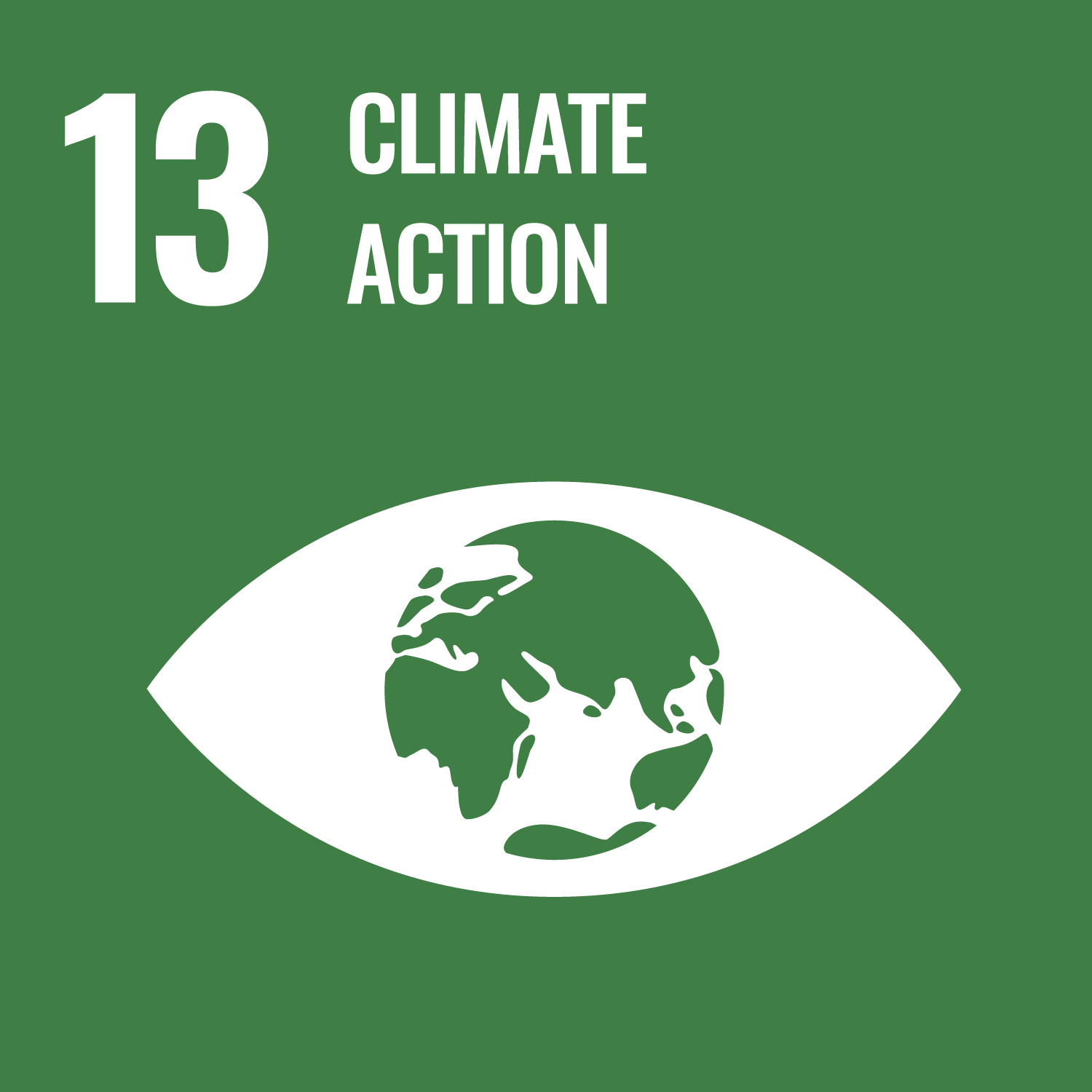
SDG13
Limiting the consequences of global warming
Successive natural disasters around the world demonstrate this.Limiting the impact of global warming Global warming is leading to numerous complications, particularly for already precarious populations. We are working to limit them and provide appropriate solutions. This is particularly true of our project with the NGO Médecins Sans Frontières in Madagascar. The famine among the population in the south of the country is partly caused by the drought, which is becoming increasingly severe on the island, making it difficult to grow enough food to feed the population.
In addition, areas that are highly exposed to climatic or seismic hazards regularly have to cope with natural disasters. This is the case in Haiti, where there have been more than 50 natural disasters since 2004. What's more, the number of natural disasters has doubled in the last 10 years. For example, we supplied 496 ORISA® purifiers to Secours Populaire Français and 405 ORISA® purifiers to ACTED two major French organisations that took action following the earthquake in Petit-Trou-de-Nippes last August.
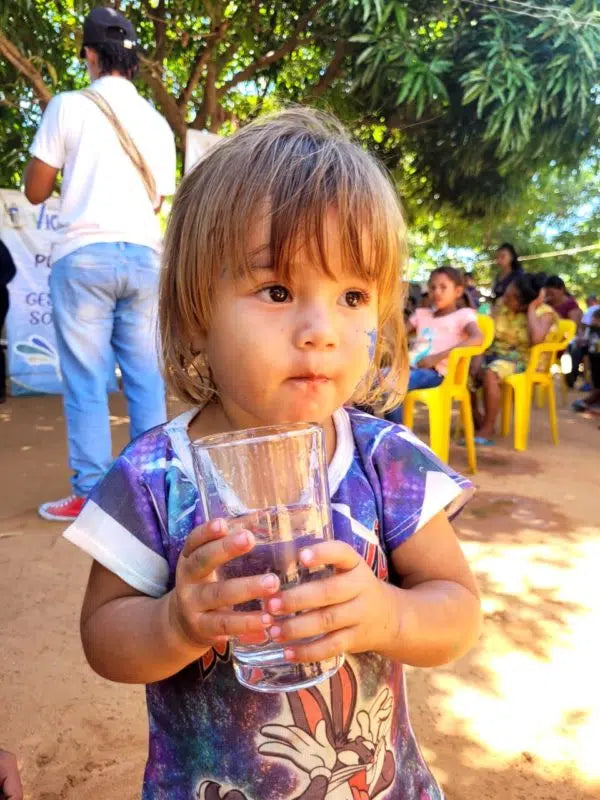
Unite
Together, let's achieve Goal 6 of the Sustainable Development Goals
International NGOs, humanitarian associations, governments, local players, major groups and social enterprises